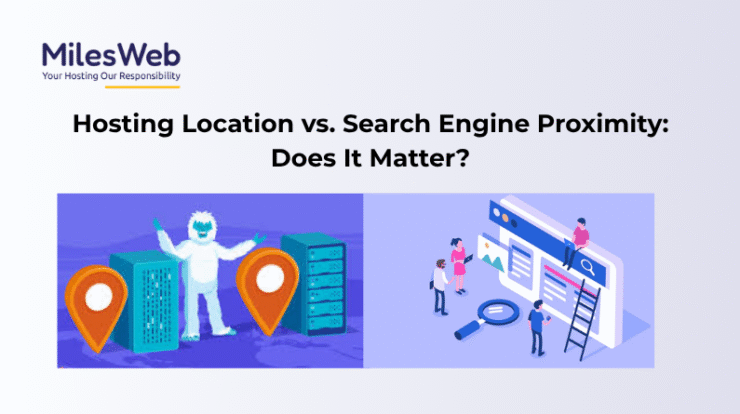
While launching a website, most owners focus on design, content, and functionality, but the server location of the web hosting is often ignored. Nevertheless, the location of web hosting for a given site directly influences user experience, how search engines perceive the website, and the site’s ranking in search queries. Managed web hosting location may seem like a technical detail, but it can significantly affect user experience and SEO performance.
Google, for instance, prioritizes websites that load efficiently and are hosted closer to the intended users. Businesses with a distant web hosting server may experience slower page loading times leading to a reduction in their SEO score. For simpler websites, static web page hosting can offer faster performance by serving lightweight content directly from nearby servers. Given that site speed is an important ranking factor, the influence of hosting proximity on user interaction and search engine attention cannot be overstated.
How Hosting Location Impacts User Engagement
1. Website Speed and User Experience
As the server location is near, the target audience ensures a faster data transfer. Also, it reduces the latency and enhances the website load time. Faster page loading ensures more user engagement. With this, they are more likely to stay, engage, and convert the business directly.
Search engines also measure bounce rates and time spent on the website. If users bounce off your site because they find it too slow, it’s going to look like a bad user experience and could impact your rankings. Having your website hosted closer to your users will enable you to keep a quick and seamless experience, which will assist in your SEO and user retention overall.
2. Data Privacy and Legal Compliance
Creating a web environment that is safer enhances trust and user experience. Strong regulations on data privacy align with audience expectations as well as the law, like EU-hosted websites which have simpler compliance with GDPR provisions.
Secure and transparent data handling enhances trust among users and improves adherence to established standards. Proper jurisdictional hosting contributes to compliance which helps bolster search engine reputation and user confidence in a website.
3. CDN as a Bridge Between Location and Speed
A Content Delivery Network (CDN) minimizes the impact of web hosting distance by distributing cached versions of your website across global servers. This minimizes latency even if your primary hosting server is far from the user.
CDNs give a balanced solution by combining the cost-effectiveness of centralized web hosting with the performance benefits of local delivery. CDNs give consistent performance and SEO benefits across regions.
4. Localized Content and Hosting Synergy
Search engine prefers the localized content on the website. It aligns with your content language and cultural context to boost the authenticity of your web presence. It signals search engines that the website is genuinely customized to the audience.
This synergy improves trust signals like local backlinks, regional keyword usage, and on-site behavior metrics, elements that directly contribute to stronger SEO performance in that market.
5. Server Downtime and Search Indexing
Frequent or prolonged downtimes harm the search engine rankings. Hosting closer to reliable infrastructure and within the operational time zone reduces technical issues and makes response times faster.
Search engines prefer websites that are constantly available and easy to crawl. A reliable hosting environment, preferably near your core audience, ensures your site is accessible when crawlers and visitors come looking.
6. Crawling Efficiency for Search Engines
Google and other search engines regularly crawl websites to index new content. It is advantageous to have your server located closest to the search engine’s data centers as it minimizes the latency in the crawling process.
Better crawling translates to faster indexing of your content. This is crucial for news portals, blogs, and e-commerce stores that have frequent updates. With optimized hosting location, the speed and accuracy of indexed data improves, thereby granting you an SEO advantage.
7. Bounce Rate and Session Duration
Website abandonment rate increases due to the distant server location. It leads to the higher bounce rates. A local web hosting server helps in quick website loading time, especially during peak hours, keeping the users engaged.
Longer sessions durations and lower bounce rates send positive signals to search engines. It indicates valuable and relevant content. Hosting location indirectly influences these behavioral metrics, which are critical for strong SEO performance.
Summing Up
In the digital world, where every millisecond counts, hosting location plays a vital part in determining how fast your website will load, how visible your site will be in regional SEO, and potentially if it will comply with a country’s local data laws. While it is far from the only ranking factor, it is certainly major factor when it comes to user experience and search performance.
If you want to maximize success, you must pair a good hosting location with all other area of SEO practices or use a CDN if you are reaching customers across the globe. With the implications that hosting location has, whether building a local blog or running a global e-commerce business, understanding the ramifications of hosting location is a critical step towards determining your success in the competitive search landscape.
